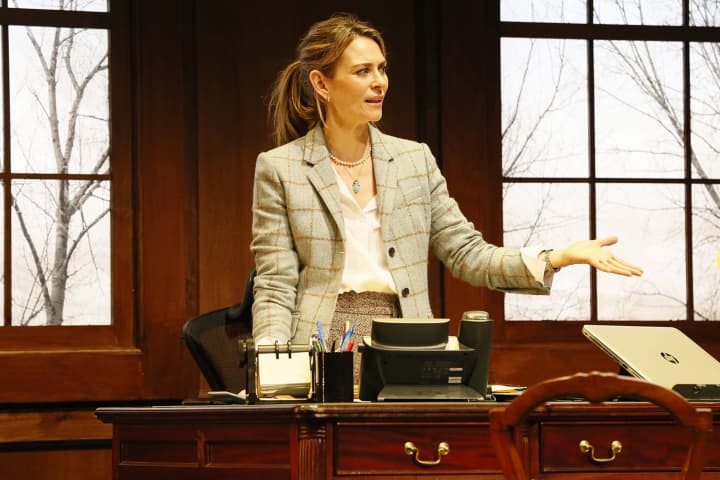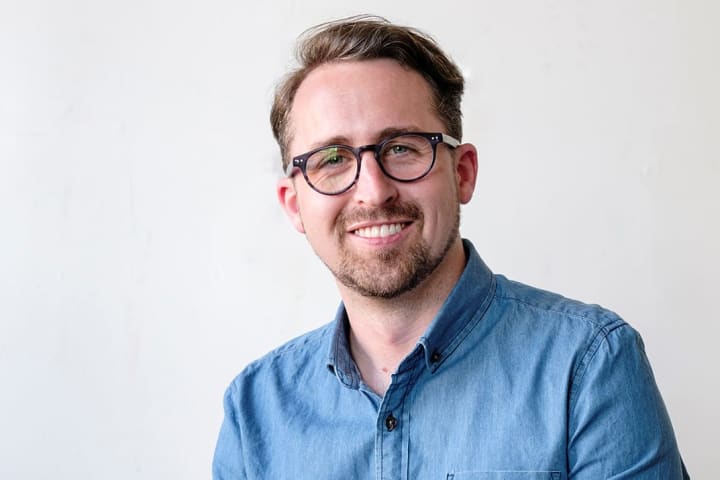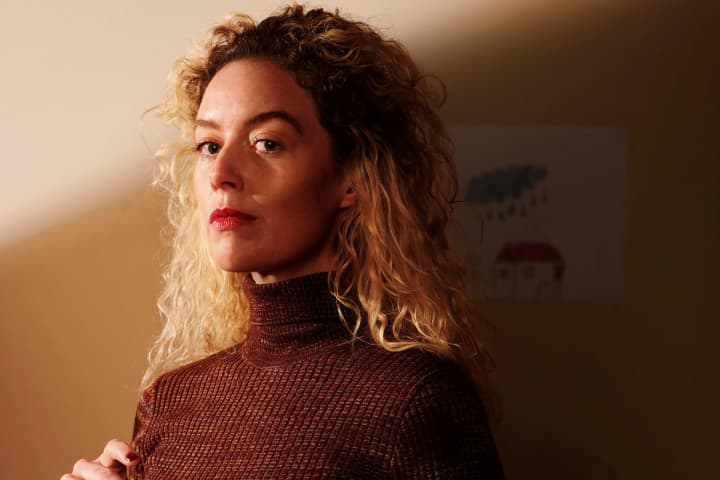The world has changed dramatically over the last two years and the performing arts is no exception. Thinking back to the ‘before times’ feels like a million years ago. A time when things were less complicated. I (we) took so much for granted. I have never taken my role as an artist, or storyteller for granted – that has always been something I have felt incredibly fortunate to do. I did take for granted the simple act of a large group of people sitting together in the dark for two hours to share the experience of a story – live, and how much being in that collective was shaping my experience of the world. It improved my ability to empathise with others, made me feel less alone – more connected. I was connected to the other strangers in the audience through the shared experience of the play we were seeing together. I am not alone in this feeling; it was the overwhelming experience of the audiences who briefly came back between lockdowns.
It is not lost on me how lucky I was to direct two shows this year and works that spoke to the times in which we live with such power. Sexual Misconduct of the Middle Classes by Hannah Moscovitch was about a sexual relationship between a university lecturer and a student. It happened to coincide with Brittany Higgins and the revelations of her assault on the front pages of the paper every day. The other show, The Lifespan of a Fact, an adaptation of the book by author Jim Fingal and fact checker John D’Agata, was an ideological battle over the nature of truth and the value of storytelling. In the online spaces we are inhabiting, the idea of whether facts are negotiable in search of a greater truth was more prescient than I could have imagined at the time of programming twelve months earlier.
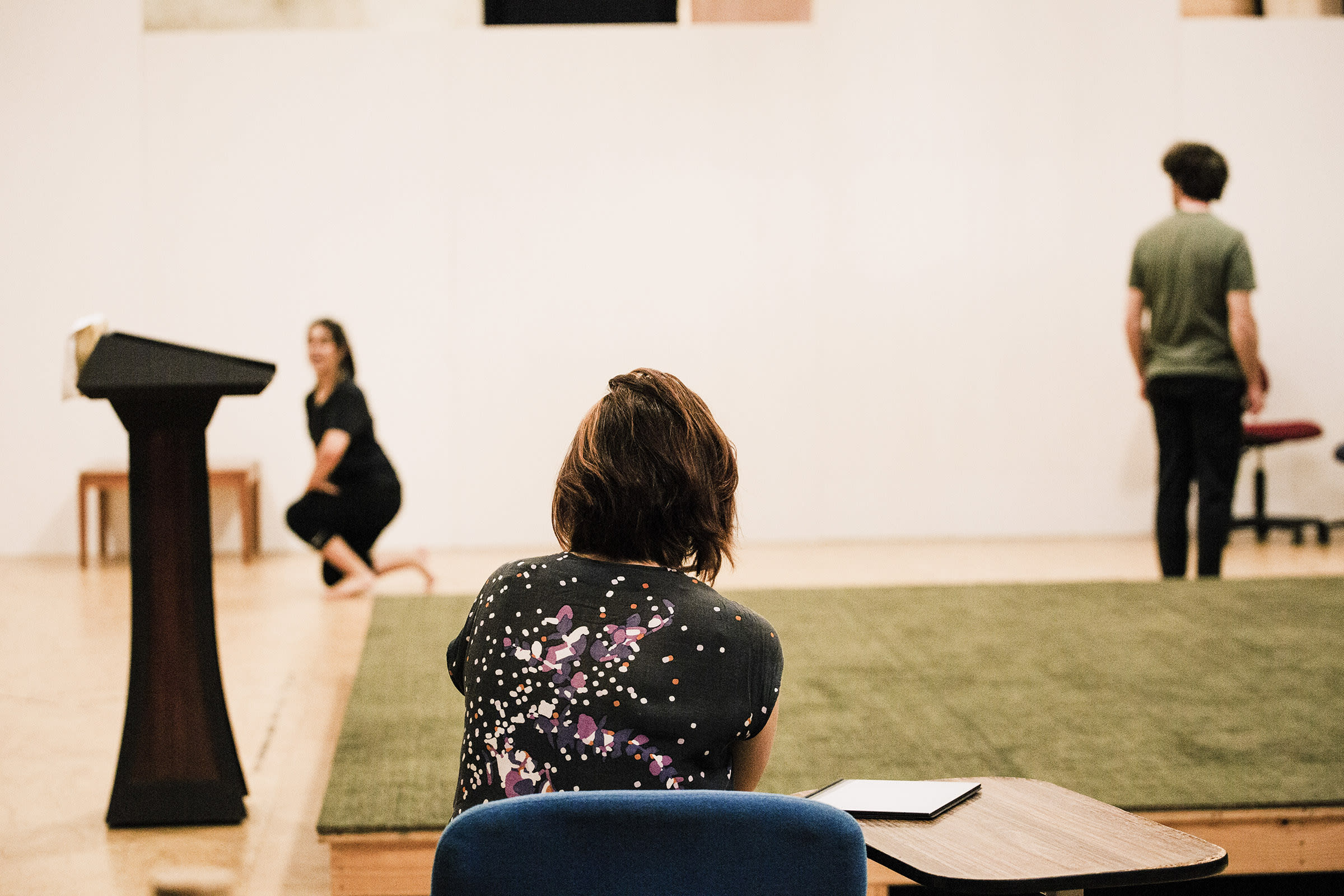
Izabella Yena, Petra Kalive and Dan Spielman in rehearsals for Sexual Misconduct of the Middle Classes. Photo: Jacinta Keefe
Audiences were hungry for a story that was meaningful, moved them, made them laugh, reflect – and they wanted to do it together. I’ve heard recent reports in the US as Broadway has reopened, that unknown actors stepping onto stage are being met with standing ovations. The shared intimacy of a live performance is impactful, and audiences are, by all accounts loving its return. It has been devastating to see so many live shows cancelled this year. At MTC we lost three shows, one of them two hours before opening night. Of the shows that did make it on stage, none were without lockdown disruptions or capacity restrictions. Since March 2020, 585 performances have been cancelled at MTC alone.
Hope is something that has been a recurring theme for me over the last two years. Hope and optimism for the future and our ability to get through this incredibly difficult time. I think it is our job as artists to provide hope in the work that we create. When I say that, I do not mean schmaltzy ‘it’ll all be ok in the end’ stories – I mean, a hand in the dark, or watching something virtuosic, or a line that summarises exactly your unarticulated feeling, or being taken out of the complexity of our lives for a moment to sit in an imagined future or alternate reality, or something that helps you make sense of, grieve, process, digest … Even though it has been a dark time for so many, it is the moments of connection created by artists, in and out of lockdowns – inspiring examples of creativity and ingenuity – that will endure beyond the memory of this pandemic.
Historian Anslem Heinrich wrote about how the performing arts not only survived the 1918 pandemic and First World War, but came out stronger, with the arrival of the avant-garde. From life-threatening crisis, the arts reinvigorated with new people and new ways of creative expression. We are in the midst of this dynamic shift right now. I think in the next few years we will see a revolution on our stages in the work that we create and the people who tell it.
There have been huge advances in the digital space, both in the recording of productions for viewing beyond its season and opportunities for new digital work. As part of MTC Digital Theatre, I had the pleasure of collaborating with director Lillian Yau from Arts Centre Melbourne on a filmed outcome of Sexual Misconduct of the Middle Classes. Her background was in editing sport, so working live and fast was second nature. The response from these recorded performances has been extremely positive. This is remarkable with the digital competition for content. It is exciting to think in the future these productions (and many others) will be accessible for audiences across Australia.
Online resources across the industry will continue to grow with advances like live-streaming and gaming technology. Like live theatre, the desire is to create an interaction – a shared experience - and the opportunities are limitless. A new form is emerging. The modern equivalent of the 1918 avant-garde movement. We are not there yet, but the pandemic has forced us to reimagine what a ‘theatre’ or live experience could be.
Whatever we create in the future there is no return to ‘normal’ because the world has changed. I am fascinated to see what we retain and what we let go of. My feeling is that like the productions earlier this year, audiences want relevance, connection, humour, escapism and a way to process all that has happened in the last two years.
With that in mind, I have been working on the development of a new play, Laurinda. It is an adaptation by Diana Nguyen of the novel by Alice Pung. Diana and I have been working via Zoom and Google docs to collaborate over lockdowns. Laurinda interrogates power and privilege. It does so through humour and subversion, decolonising the familiar young-adult coming of age story. But this is a work for everyone, because it deftly unpicks the ways in which marginalised communities navigate institutions, and it is doing so while uplifting and showcasing an incredible group of artists.
The other play is Touching the Void. We go into the rehearsal room imminently. It is a true tale of human endurance and survival written for stage by David Greig based on the book by Joe Simpson. I read this piece prior to the pandemic and throughout our various lockdowns, I was haunted by it. Although not literally climbing mountains, Victorians were on their own endurance journey. This story is ultimately about our capacity to endure and the inner resources we have to survive, even when it feels like we have nothing left. I couldn’t think of a more fitting way to sit with and reflect on the potential of the human spirit.
I am keenly aware that I couldn’t be doing this work without the incredible support of our audiences. When MTC reached out to our ticket buyers and donors with an urgent call last year they saw a generous response and an influx of new donors. It was truly humbling to know that these donations came at such a dire time for artists. It was a rallying cry from a community who through their actions told us that they cared about the arts, valued what we do, and saw the importance of connection and empathy.
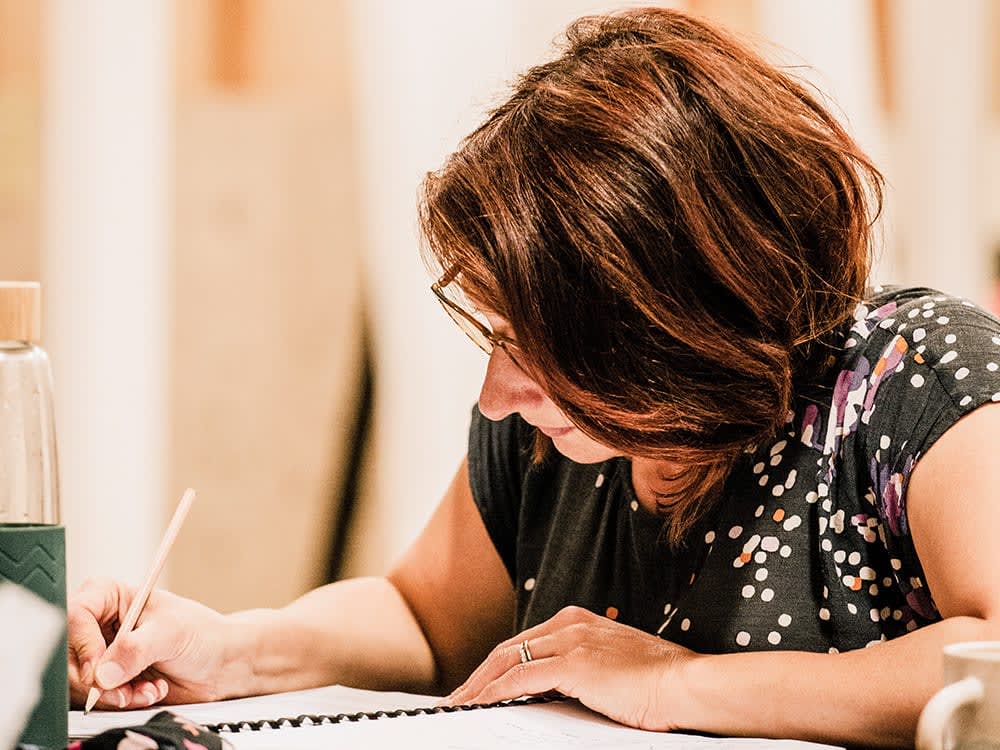
Petra Kalive taking notes during rehearsals of Sexual Misconduct of the Middle Classes. Photo: Jacinta Keefe
So, I am left with a great sense of hope for the future, even though much of this year I have not felt that way and the way forward is uncertain. I am buffeted by the people in our community who have shown incredible support and generosity. I am inspired and excited by the potential of digital and the evolution of what we will be able to do into the future. I cannot wait to see what voices are given space to tell us stories from new perspectives. And I am comforted by the fact that people are hungry for the stories that we tell, they want meaningful and relevant work. I am excited to share them together because for me – nothing beats that.
Published on 3 December 2021


